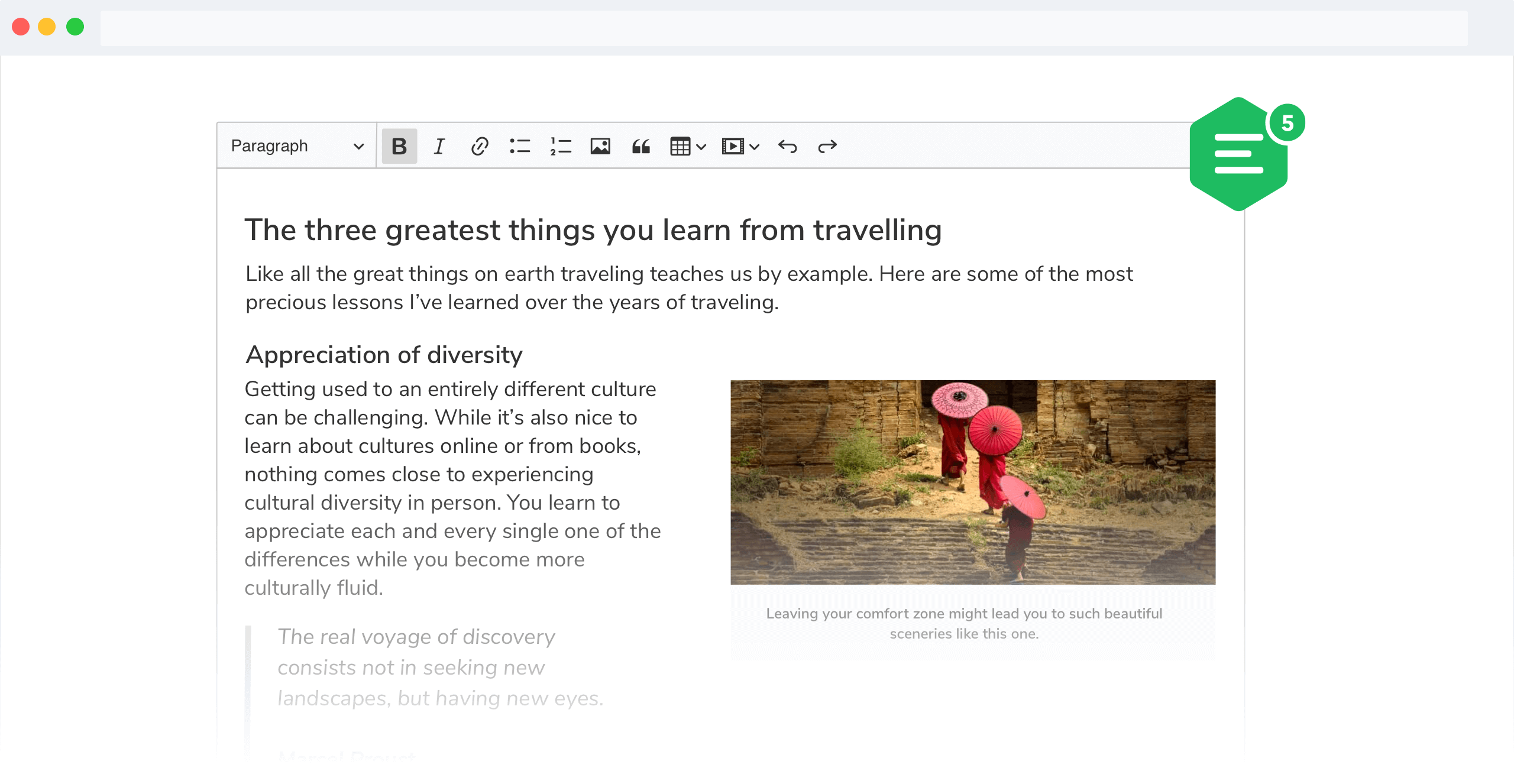# clone github project
git clone [email protected]:freeshineit/ckeditor5-build-classic.git
cd ckeditor5-build-classic
# install dependencies package
npm install
# develpoment env
npm run dev
# webpack build production
npm run build
# npm package publish
npm login
npm publish
## sample http://localhost:8080
npm run servernpm install @freeshine/ckeditor5-build-classic --save-devimport React, { useEffect, useRef } from 'react'
import ClassicEditor from '@freeshine/ckeditor5-build-classic'
import './App.css'
function App() {
const editorDom = useRef(null)
useEffect(() => {
ClassicEditor.create(editorDom.current, {
language: 'zh-cn'
})
.then(editor => {
window.editor = editor
})
.catch(err => {
console.error(err.stack)
})
}, [])
return (
<div className="App">
<div className="zlt-ckeditor5">
<textarea
className="zlt-editor"
style={{ display: 'none' }}
ref={editorDom}
/>
</div>
</div>
)
}
export default AppThe classic editor build for CKEditor 5. Read more about the classic editor build and see the demo.
See:
- Installation for how to install this package and what it contains.
- Basic API for how to create an editor and interact with it.
- Configuration for how to configure the editor.
- Creating custom builds for how to customize the build (configure and rebuild the editor bundle).
First, install the build from npm:
npm install --save @ckeditor/ckeditor5-build-classicAnd use it in your website:
<div id="editor">
<p>This is the editor content.</p>
</div>
<script src="./node_modules/@ckeditor/ckeditor5-build-classic/build/ckeditor.js"></script>
<script>
ClassicEditor.create(document.querySelector('#editor'))
.then(editor => {
window.editor = editor
})
.catch(error => {
console.error('There was a problem initializing the editor.', error)
})
</script>Or in your JavaScript application:
import ClassicEditor from '@ckeditor/ckeditor5-build-classic'
// Or using the CommonJS version:
// const ClassicEditor = require( '@ckeditor/ckeditor5-build-classic' );
ClassicEditor.create(document.querySelector('#editor'))
.then(editor => {
window.editor = editor
})
.catch(error => {
console.error('There was a problem initializing the editor.', error)
})Note: If you are planning to integrate CKEditor 5 deep into your application, it is actually more convenient and recommended to install and import the source modules directly (like it happens in ckeditor.js). Read more in the Advanced setup guide.
Licensed under the terms of GNU General Public License Version 2 or later. For full details about the license, please check the LICENSE.md file or https://ckeditor.com/legal/ckeditor-oss-license.

